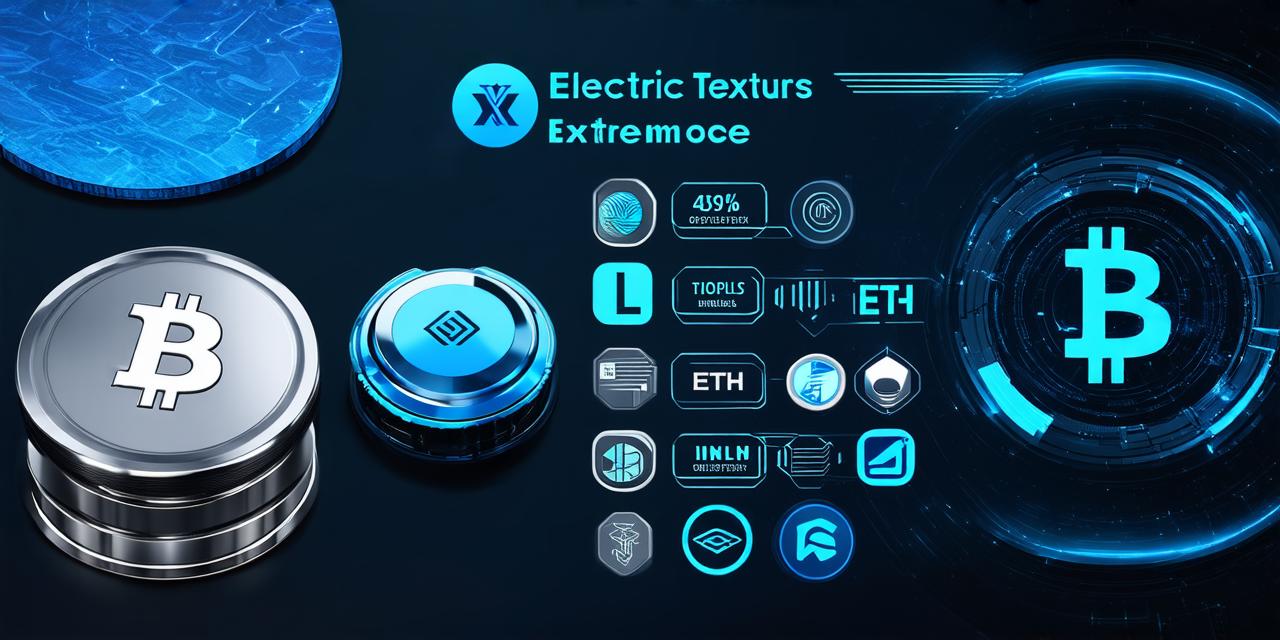
Introduction:
Cryptocurrency is a digital currency that enables secure and direct P2P transactions without any intermediaries. Bitcoin, the first cryptocurrency created in 2009, has revolutionized the way people store and spend their money. However, it’s not just Bitcoin that rules the market; there are many other alternative cryptocurrencies (altcoins) available for investors to consider.
What are Altcoins?
Altcoins are digital currencies created after Bitcoin. Unlike Bitcoin, altcoins have different features and functions, such as faster transaction times, lower fees, and improved security. Altcoins can be mined or staked, just like Bitcoin, but they have their own unique mining algorithms and consensus mechanisms.
Ethereum: A Smart Contract Platform
Ethereum is the second-largest cryptocurrency by market capitalization, with a market cap of over $400 billion as of August 2021. Unlike Bitcoin, which is primarily used for buying goods and services, Ethereum is a platform that enables developers to build decentralized applications (DApps) on top of the blockchain. Ethereum’s smart contracts are self-executing programs that can automate complex processes without intermediaries. This makes Ethereum ideal for building DApps in various industries, such as finance, healthcare, and supply chain management.
Litecoin: A Faster and Cheaper Bitcoin Alternative
Litecoin is a fork of Bitcoin created in 2011 by Charlie Lee, the creator of Dogecoin. Litecoin has several improvements over Bitcoin, including faster transaction times (30 seconds vs. 10 minutes) and lower fees (0.01 LTC vs. 0.001 BTC). Litecoin is often used for micropayments and online purchases due to its speed and affordability.
Ripple: A Payment Protocol for Financial Institutions
Ripple is a payment protocol that enables fast, low-cost cross-border payments in various currencies, including fiat and cryptocurrency. Ripple’s primary focus is on the banking and financial sectors, enabling institutions to settle transactions quickly and efficiently without relying on intermediaries. Ripple has partnerships with several major banks, including Bank of America and JPMorgan Chase, making it a popular choice for financial institutions looking to integrate cryptocurrency into their operations.
Bitcoin Cash: A Hard Fork of Bitcoin with Larger Block Sizes
Bitcoin Cash is a hard fork of Bitcoin that aims to increase the block size limit to 8 MB, compared to Bitcoin’s current limit of 21 MB. This allows for more transactions per second and faster confirmation times. Bitcoin Cash also has lower transaction fees than Bitcoin, making it an attractive option for merchants and miners.
Pros and Cons of Altcoins
Like any investment, altcoins come with their own set of pros and cons. One of the main advantages of altcoins is that they offer a diversification opportunity for investors looking to spread their portfolio beyond Bitcoin. Additionally, altcoins may have unique features or use cases that set them apart from Bitcoin, such as faster transaction times or improved security.
Case Studies: Real-Life Applications of Altcoins
Altcoins have several real-life applications across various industries, from finance to supply chain management. One example is Chaincode, a blockchain platform developed by IBM that uses the Hyperledger Fabric, which is based on the Ethereum blockchain. Chaincode enables businesses to build and deploy smart contracts that can automate complex processes and improve efficiency in areas such as supply chain management and finance.
Conclusion: Embracing the Future of Alternative Cryptocurrencies
The world of alternative cryptocurrencies is constantly evolving, with new innovations and use cases emerging all the time. As investors, it’s important to stay informed about the latest developments in the market and understand the unique features and functions of each altcoin. By embracing the future of alternative cryptocurrencies, we can unlock new opportunities for growth and innovation across various industries.
FAQs
What sets altcoins apart from Bitcoin?
Altcoins have different features and functions than Bitcoin, such as faster transaction times, lower fees, and improved security. Altcoins also offer unique use cases or industries that set them apart from Bitcoin, such as finance or supply chain management.
FAQs
Are altcoins a good investment for diversification purposes?
Yes, investing in altcoins can offer diversification opportunities for investors looking to spread their portfolio beyond Bitcoin. However, it’s important to note that the market is highly volatile, and many altcoins are relatively new and untested. Investors should always do thorough research before making any investment decisions.
FAQs
Do altcoins face regulatory challenges?
Yes, altcoins face regulatory challenges as governments and financial institutions grapple with how to classify and regulate cryptocurrencies. This can make it difficult for businesses to adopt and integrate altcoins into their operations.
Conclusion: Embracing the Future of Alternative Cryptocurrencies
The world of alternative cryptocurrencies is constantly evolving, with new innovations and use cases emerging all the time. As investors, it’s important to stay informed about the latest developments in the market and understand the unique features and functions of each altcoin. By embracing the future of alternative cryptocurrencies, we can unlock new opportunities for growth and innovation across various industries.
